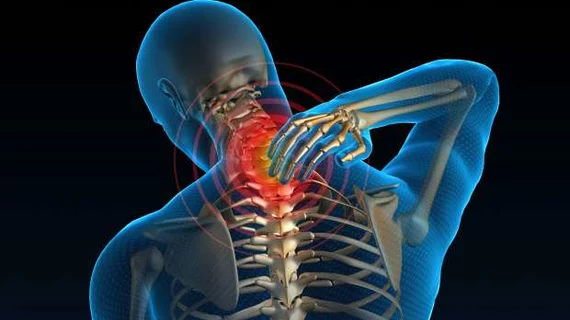Focused ultrasound may alleviate pain without drugs, study finds
Researchers from Virginia Tech have demonstrated that low-intensity ultrasound can alleviate chronic pain when focused on an area of the brain that regulates and processes those signals. When soundwaves were applied to the dorsal anterior cingulate cortex region of the brain, patients reported a reduction in pain and showed a reduced bodily response to pain, all without the need for drugs. The findings are published in the Journal of Neuroscience. [1]
In this study from the university's Fralin Biomedical Research Institute, 16 volunteers were subjected to heat on the skin to cause brief pain, with the research team measuring skin reaction, brain signals, and heart rate. Ultrasound waves were focused on the dorsal anterior cingulate cortex to see if it could impact the way the subjects experience pain.
“This study points to a non-invasive and effective way to modulate a critical region of the brain involved in pain processing, while eliminating many of the risks associated with surgeries,” study senior author Wynn Legon, PhD, assistant professor at the Fralin Institute, said in a statement. “It provides a potential new means to modulate the brain activity in response to pain that may serve to better understand the mechanisms of chronic pain to provide a new, innovative therapeutic option that could change how we approach and treat pain in the future.”
The research lasted three days, where imaging data from CT scans and MRIs was also gathered from participants. While the patients did report pain relief from the ultrasound, the scans also revealed discernible physical alterations in the interplay between the brain and heart. Specifically, the heart exhibited a reduced response to pain stimuli, while specific brain signals changed accordingly.
“Chronic pain patients often experience cardiovascular issues, which may either be at the root of their chronic pain or play a role in contributing to it,” Legon said. “Understanding this intricate relationship is crucial, because it enhances our comprehension of pain mechanisms and suggests the importance of addressing both pain perception and cardiovascular health.”
The study findings indicate that utilizing low-frequency ultrasound on this particular region may alter the brain’s perception of pain signals, thus changing the way the body reacts to them. However, the study authors said research is needed to understand the physiological response.
“While there has been tremendous progress in recent years in the use of high intensity focused ultrasound for creating small lesions in patients’ brain to treat disorders … we are at the very beginning of exploration of the use of low intensity focused ultrasound to mildly modulate brain activity and affect perception and behavior,” Michael Friedlander, PhD, Virginia Tech’s VP of health sciences and technology, said in the statement.
Friedlander was not involved in the study, but he does monitor research from the Fralin Institute, serving as its executive director. He hopes the research leads to therapies that reduce the need for patients with chronic pain to take addictive drugs.
“The fact that [this research] is addressing one of the most debilitating diseases, chronic pain, represents a major step in this important emerging field of biomedical research and provides hope for better treatments that may avoid the untoward effects of many drugs used for treating pain,” Friedlander added.
The full study is available at the link below.

